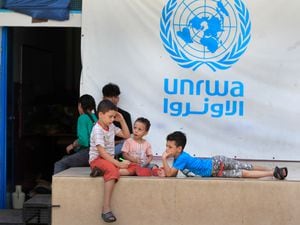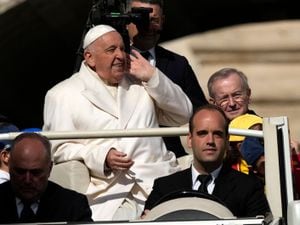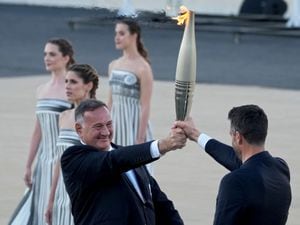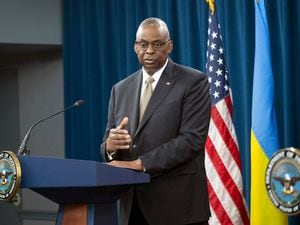Iraqi Kurds vote in referendum on independence from Baghdad
Millions are expected to vote across the three provinces that make up the Kurdish autonomous region.

Iraqi Kurds were going to the polls on Monday to vote on whether to support independence from Baghdad in a historic but non-binding referendum that has raised regional tensions and fears of instability.
Millions were expected to vote across the three provinces that make up the Kurdish autonomous region, as well as residents in disputed territories – areas claimed by both Baghdad and the Kurds, including the oil-rich city of Kirkuk.
The ballot is being held despite mounting regional opposition to the move and the United States has warned that it is likely to destabilise the region amid the fight with the Islamic State group.
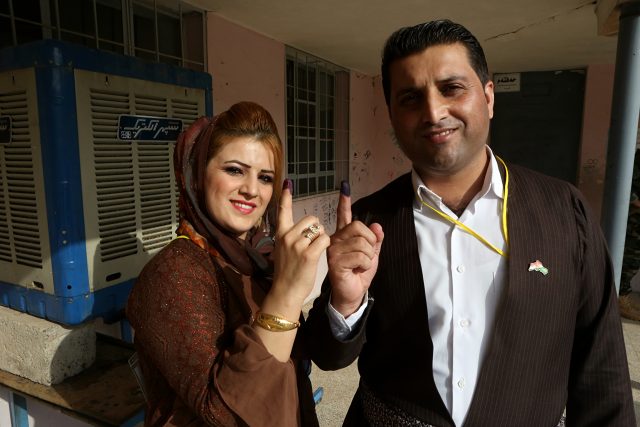
Baghdad has also come out strongly against the referendum, demanding on Sunday that all airports and borders crossings in the Kurdish region be handed back to federal government control.
In a televised address on Sunday night, Iraqi Prime Minister Haider al-Abadi said “the referendum is unconstitutional. It threatens Iraq, peaceful coexistence among Iraqis and is a danger to the region.”
“We will take measures to safeguard the nation’s unity and protect all Iraqis,” he added.
Earlier on Sunday, the Kurdish region’s president, Masoud Barzani, said during a press conference in Irbil that he believed the voting would be peaceful, though he acknowledged that the path to independence would be “risky”.
“We are ready to pay any price for our independence,” he said.
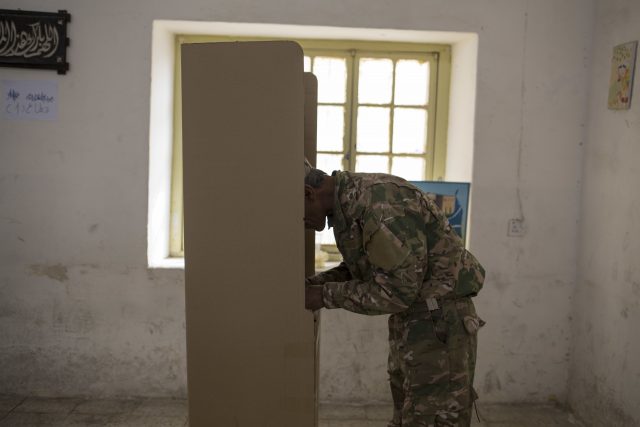
In a strongly worded statement, Turkey said on Monday that it does not recognise the referendum and declared its results would be “null and void”.
Turkey’s Foreign Ministry called on the international community and especially regional countries not to recognise the vote either and urged Iraq Kurdish leaders to abandon “utopic goals”, accusing them of endangering peace and stability for Iraq and the whole region. The ministry reiterated that Turkey would take all measures to thwart threats to its national security.
On Saturday, Turkey’s parliament met in an extraordinary session to extend a mandate allowing Turkey’s military to send troops over its southern border if developments in Iraq and Syria are perceived as national security threats.
Initial results from the poll are expected on Tuesday, with the official results to be announced later in the week.
Iraqi Kurds have long dreamed of independence – something the Kurdish people were denied when colonial powers drew the map of the Middle East after the First World War. The Kurds form a sizeable minority in Turkey, Iran, Syria, and Iraq. In Iraq, they have long been at odds with the Baghdad government over the sharing of oil revenues and the fate of disputed territories like Kirkuk.
The Kurds have been a close American ally for decades, and the first US air strikes in the campaign against IS were launched to protect Irbil, the Kurdish regional capital. Kurdish forces later regrouped and played a major role in driving the extremists from much of northern Iraq, including Mosul, the country’s second largest city.
But the US has long been opposed to Kurdish moves towards independence, fearing it could lead to the break-up of Iraq and bring even more instability to an already volatile Middle East.

